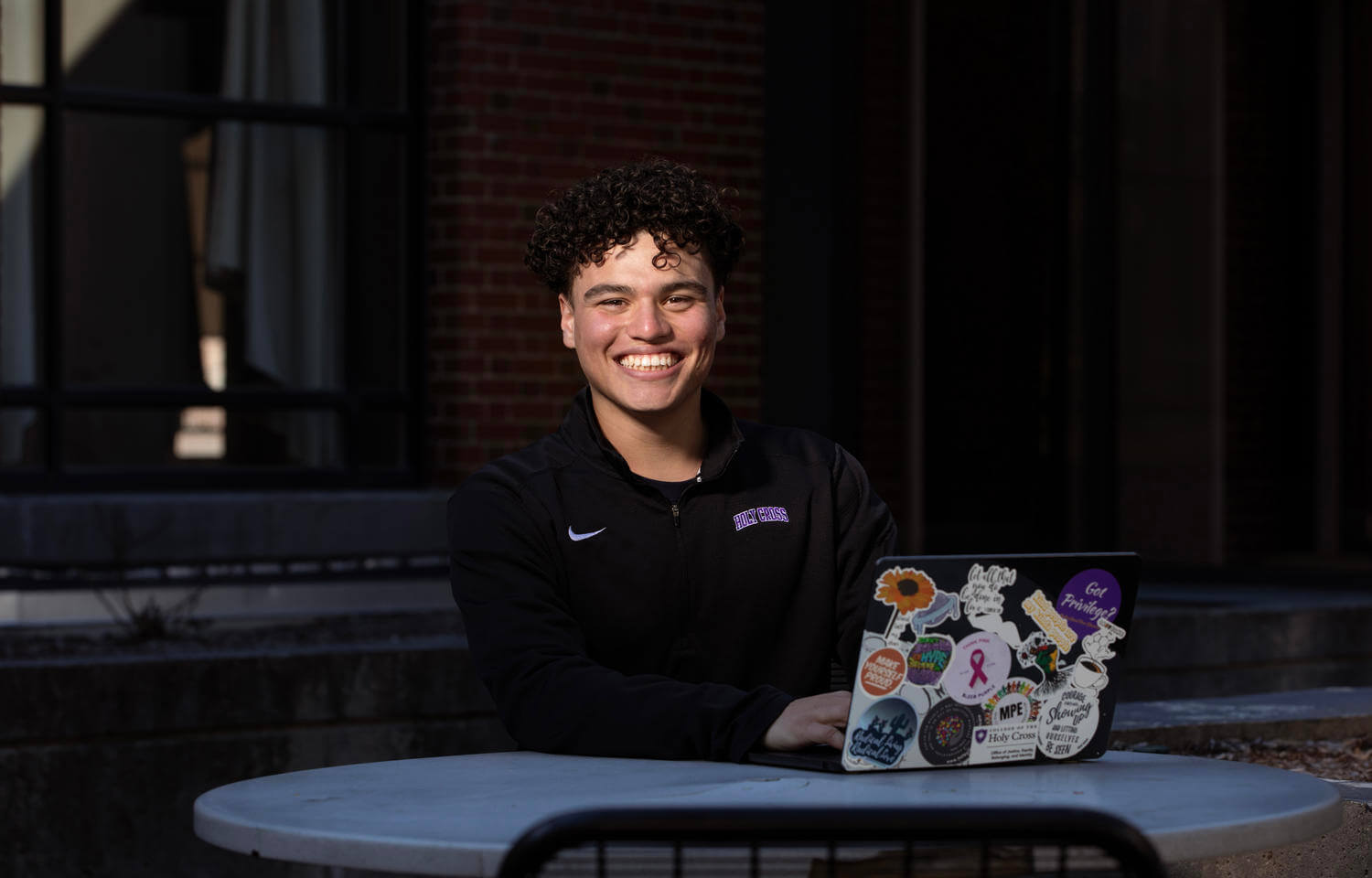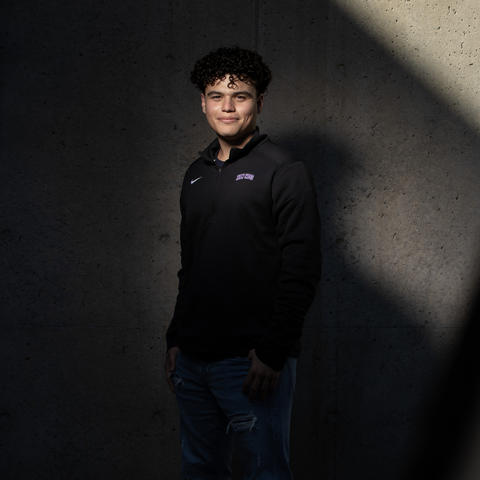To look at the calendar of Angel Collazo ’26 is to view a kaleidoscope of colors. Purple for classes. Blue for tasks. An hour-block each morning is highlighted yellow for time to reflect, let any tension from the previous day go and prepare for the day ahead.
Yet, it’s the hues of orange and pink that make up the vast majority of his waking hours. They indicate his multiple volunteer and service commitments, internships and advocacy work. He calls them his missions.
“Sometimes I forget that I'm a student because of everything else that I do. I'll sit in class and think about my next meeting or the next time I’ll be at one of the sites or what else I’m tackling that day. I’m pretty mission driven,” said Collazo, a Spanish and psychology double major with a Latin American, Latinx, and Caribbean Studies concentration (social justice track).
He refers to his outreach and volunteer work as his missions as a nod to his younger self who thought he would join the military after high school and set out on missions with his battalion.
His future plans and focus changed, though, as he became more aware of the systemic inequities and social justice challenges in the world. Informed by his own experiences, Collazo said he began to ponder the dichotomy between surviving and thriving.

